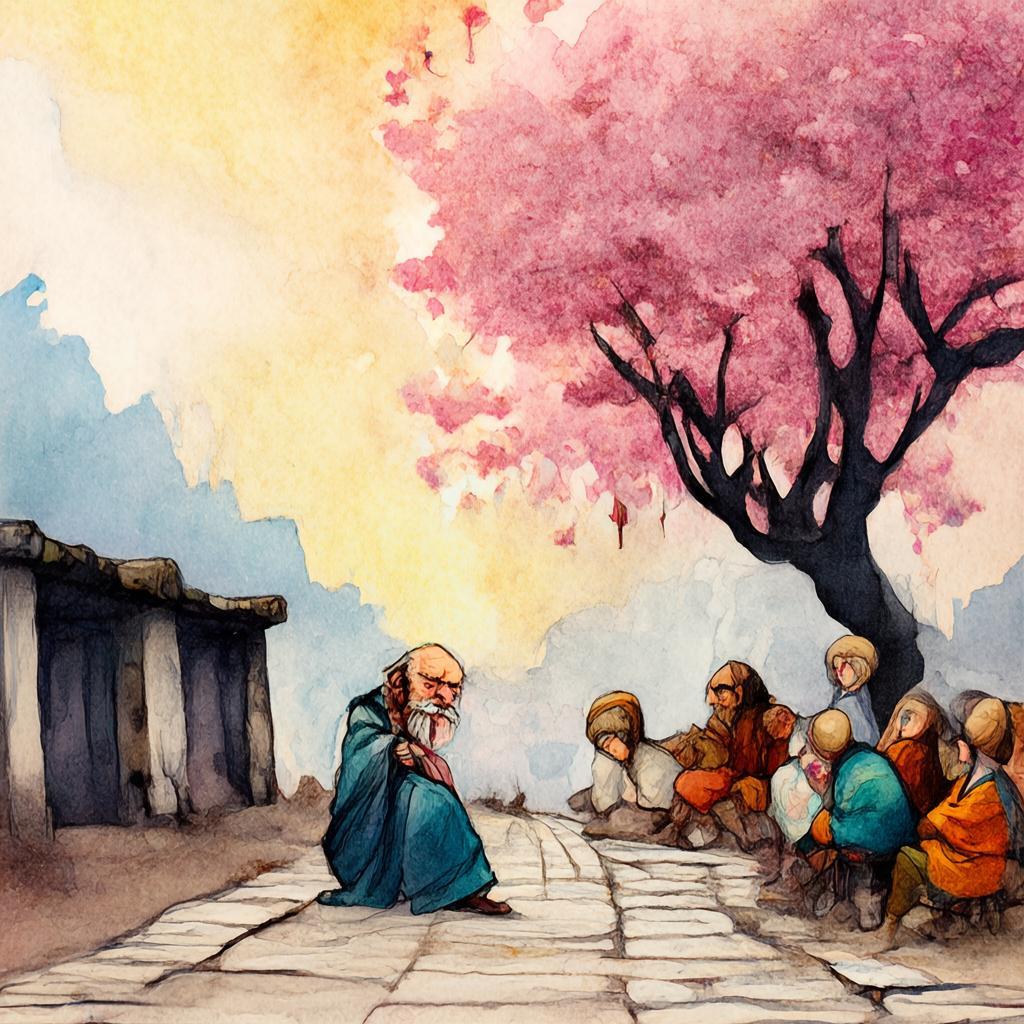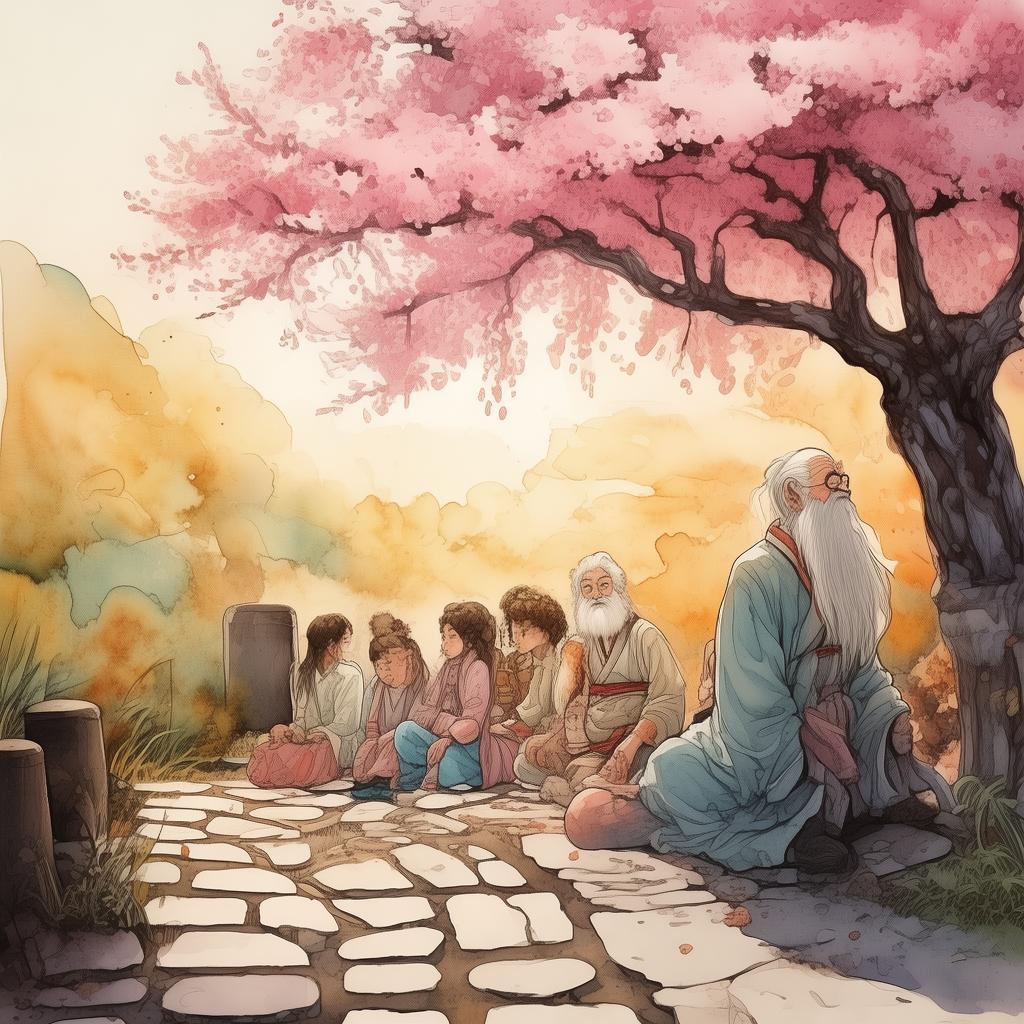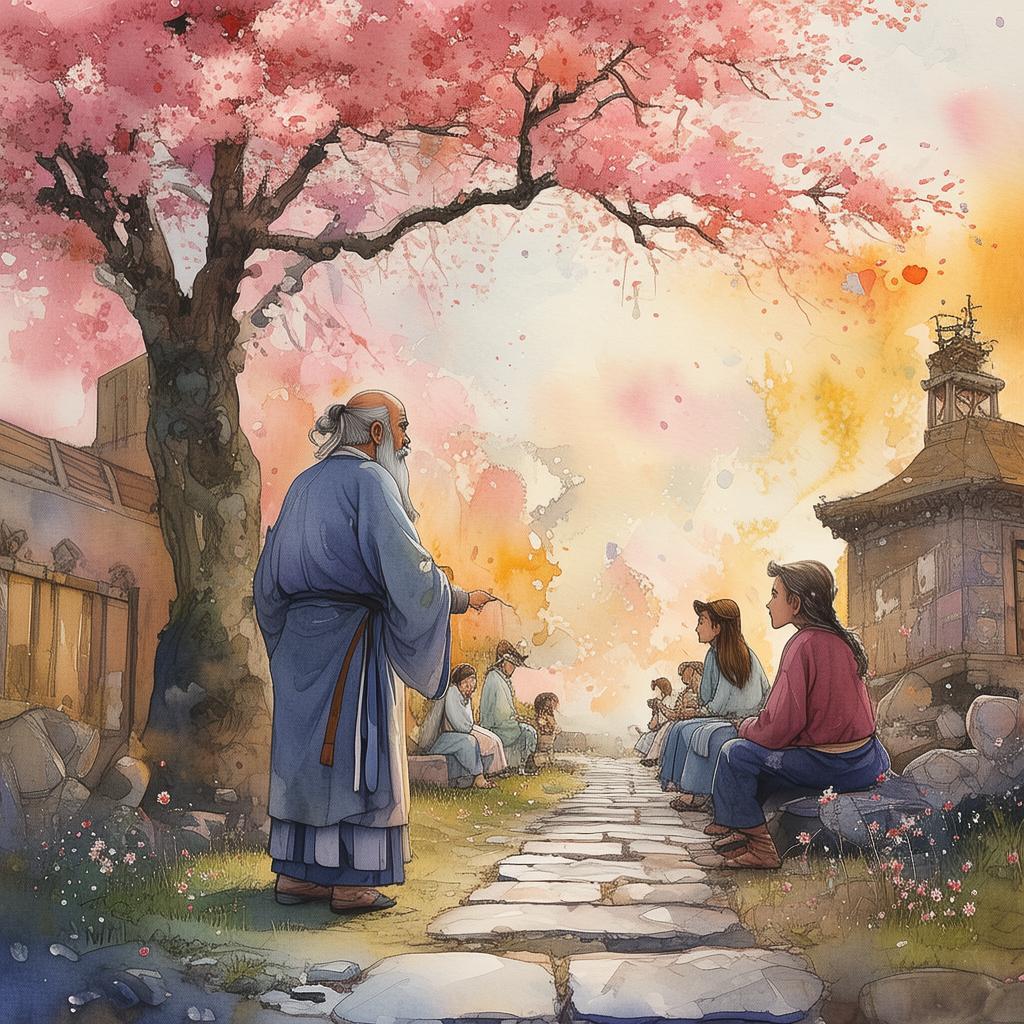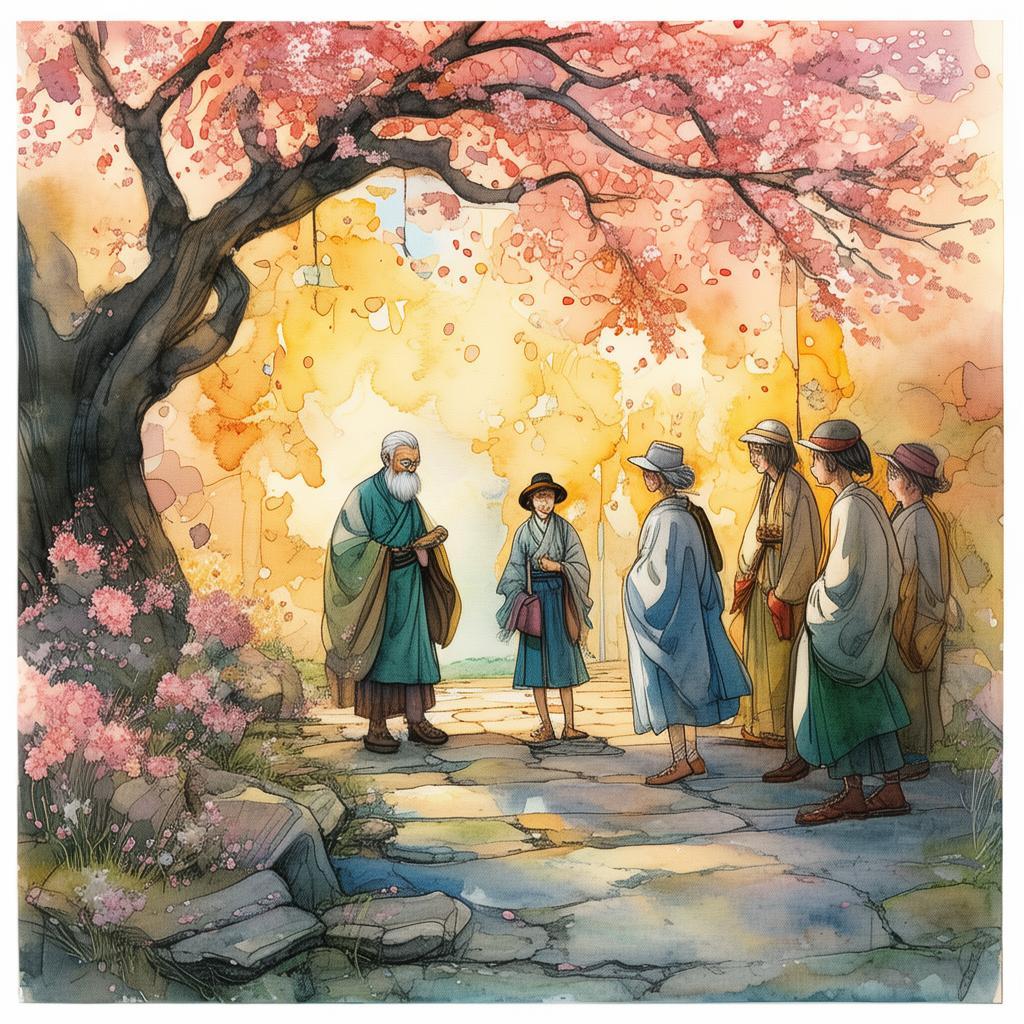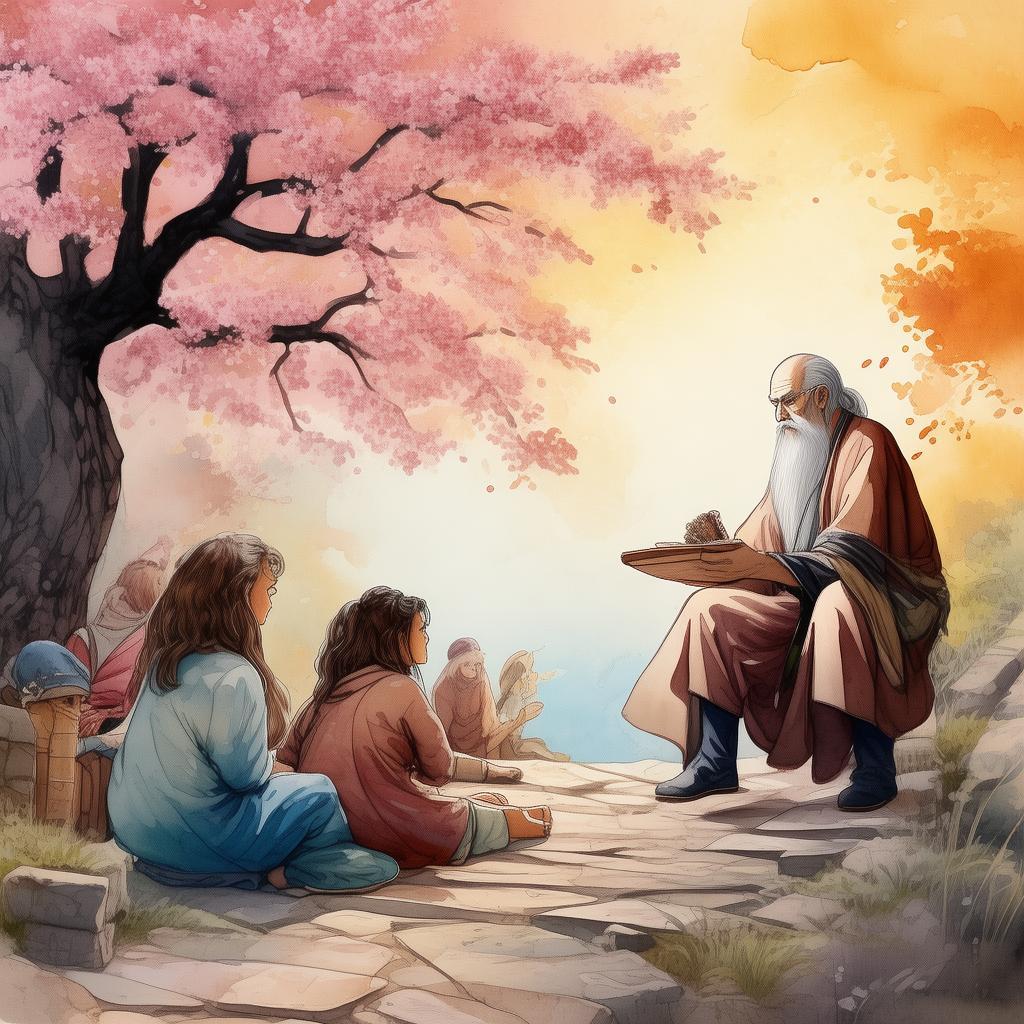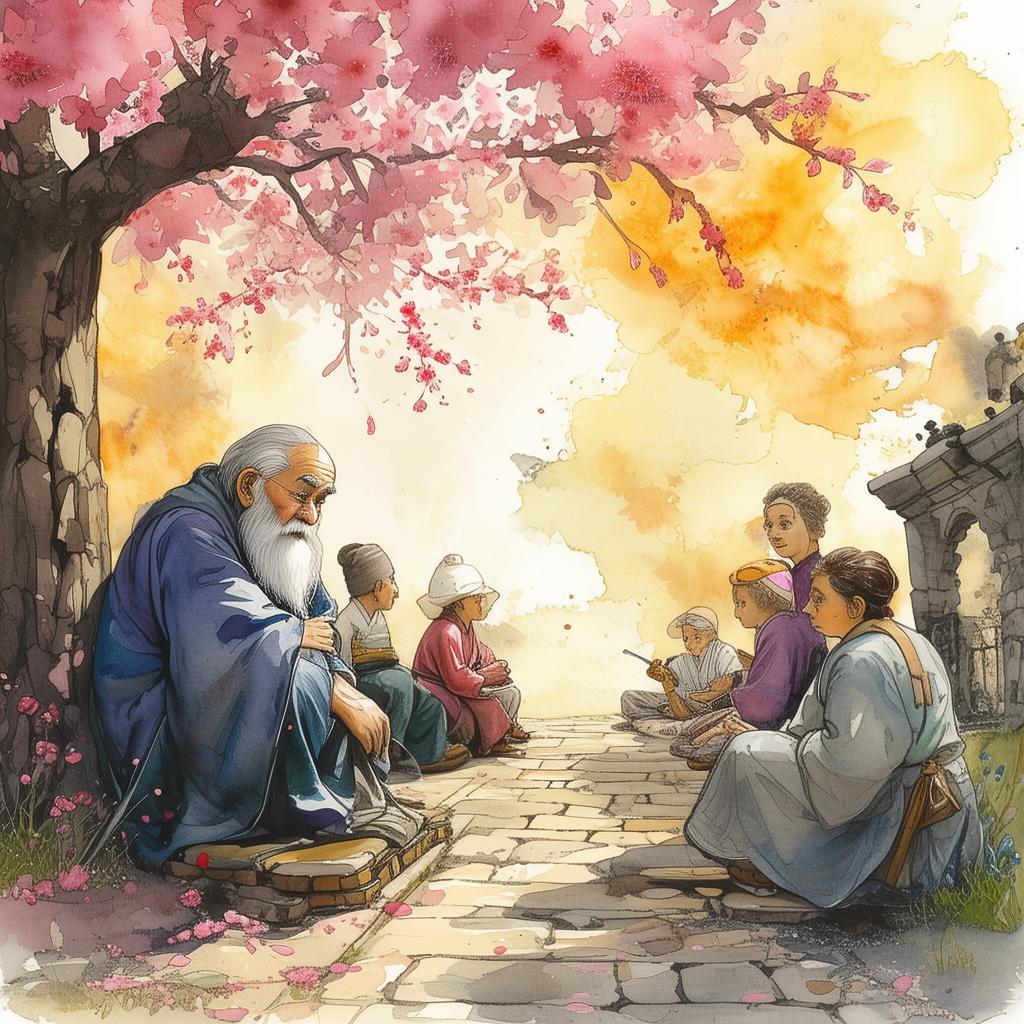The Pen That Forged a Dynasty
In the ancient kingdom of Liang, there was a scribe named Wen, whose pen was as skilled as his loyalty. His story would become a legend, woven into the very fabric of the land, a testament to the power of a well-honed quill and the unyielding spirit of friendship.
The kingdom of Liang had always been a place of peace and prosperity, its ruler, King Huan, a wise and benevolent man. Wen, the scribe, was a master of the craft, his calligraphy as intricate as the tapestries that adorned the royal court. He was not just a scribe; he was the voice of the king, his thoughts and decrees transcribed into the annals of history by Wen's steady hand.
King Huan had a close friend, Marquis Zhe, whose counsel was sought after by the king. Together, they had built the kingdom into a beacon of stability. Marquis Zhe's daughter, Mei, was a girl of grace and intelligence, and she too was a scribe, though her skill was as much with words as with the pen. She was the one who taught Wen the art of storytelling, and in doing so, had become his dearest friend.
As the years passed, the friendship between Wen and Mei grew, and so did the friendship between King Huan and Marquis Zhe. They were bound by a loyalty that transcended the bonds of blood, a loyalty that would be tested when King Huan's health began to fail.
A new ruler was chosen, a man named Jing, who was eager to take the throne. He was ambitious and cunning, and he saw the friendship between King Huan, Marquis Zhe, and Wen as a threat to his rule. He began to plot their downfall, using his newfound power to turn the kingdom against them.
Marquis Zhe was the first to feel the weight of Jing's wrath. Accused of treachery, he was imprisoned, and his daughter Mei was forced to write his confession under duress. The pen that had once written tales of glory was now used to pen a tale of betrayal.
Wen, seeing his friend in such peril, knew he had to act. He approached King Huan with a plan, a plan that would require the use of his pen to write a letter that would turn the tide of the kingdom. The letter was to be a call to arms, a declaration of loyalty to King Huan and Marquis Zhe.
As Wen sat at his desk, his heart raced with fear and determination. He dipped his pen into the ink, his hand steady despite the storm of emotions swirling within him. With each stroke, he poured his loyalty and friendship into the words, his heart aching with the weight of his decision.
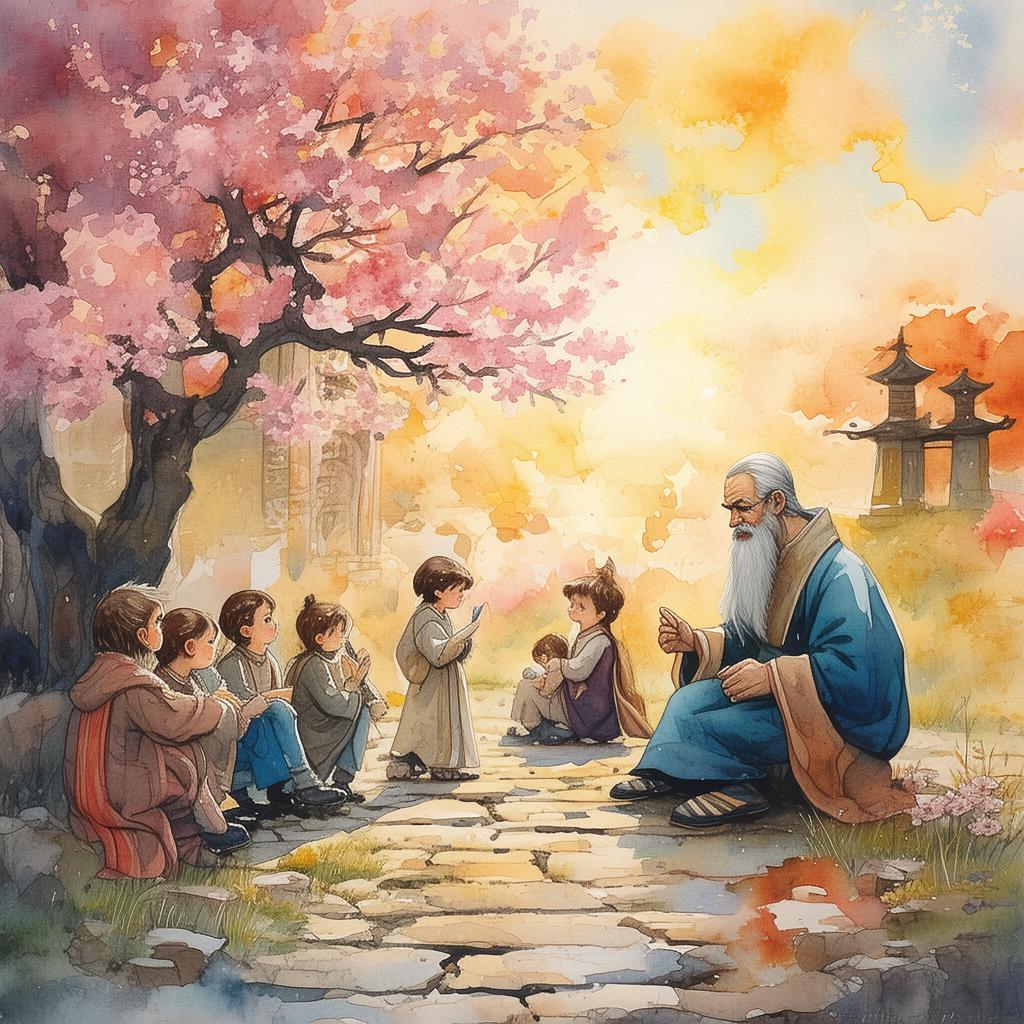
The letter was delivered to the people of Liang, and it spread like wildfire. The kingdom rose in rebellion against King Jing, and in the end, King Huan was restored to his throne. Marquis Zhe was freed, and Wen's letter was the catalyst for their victory.
However, the victory came at a cost. Mei, who had been forced to write her father's confession, was found dead in her cell, her body riddled with stab wounds. Her final act was to write a poem, her last testament to the friendship that had been torn asunder.
Wen, now the sole survivor of the trio, was overwhelmed with guilt and sorrow. He knew that Mei's death was on him, that he had used her gift to save her father and king, but at what cost? He buried Mei with the greatest honor, and her poem was inscribed on her gravestone.
The kingdom of Liang never forgot the story of Wen, the scribe, and his pen that forged a dynasty. It was said that whenever a new ruler took the throne, Wen's letter was read aloud, a reminder of the power of friendship and loyalty.
And so, the tale of Wen and Mei became a legend, a story that would be told for generations, a tale of the pen that wrote the fate of a kingdom.
✨ Original Statement ✨
All articles published on this website (including but not limited to text, images, videos, and other content) are original or authorized for reposting and are protected by relevant laws. Without the explicit written permission of this website, no individual or organization may copy, modify, repost, or use the content for commercial purposes.
If you need to quote or cooperate, please contact this site for authorization. We reserve the right to pursue legal responsibility for any unauthorized use.
Hereby declared.
